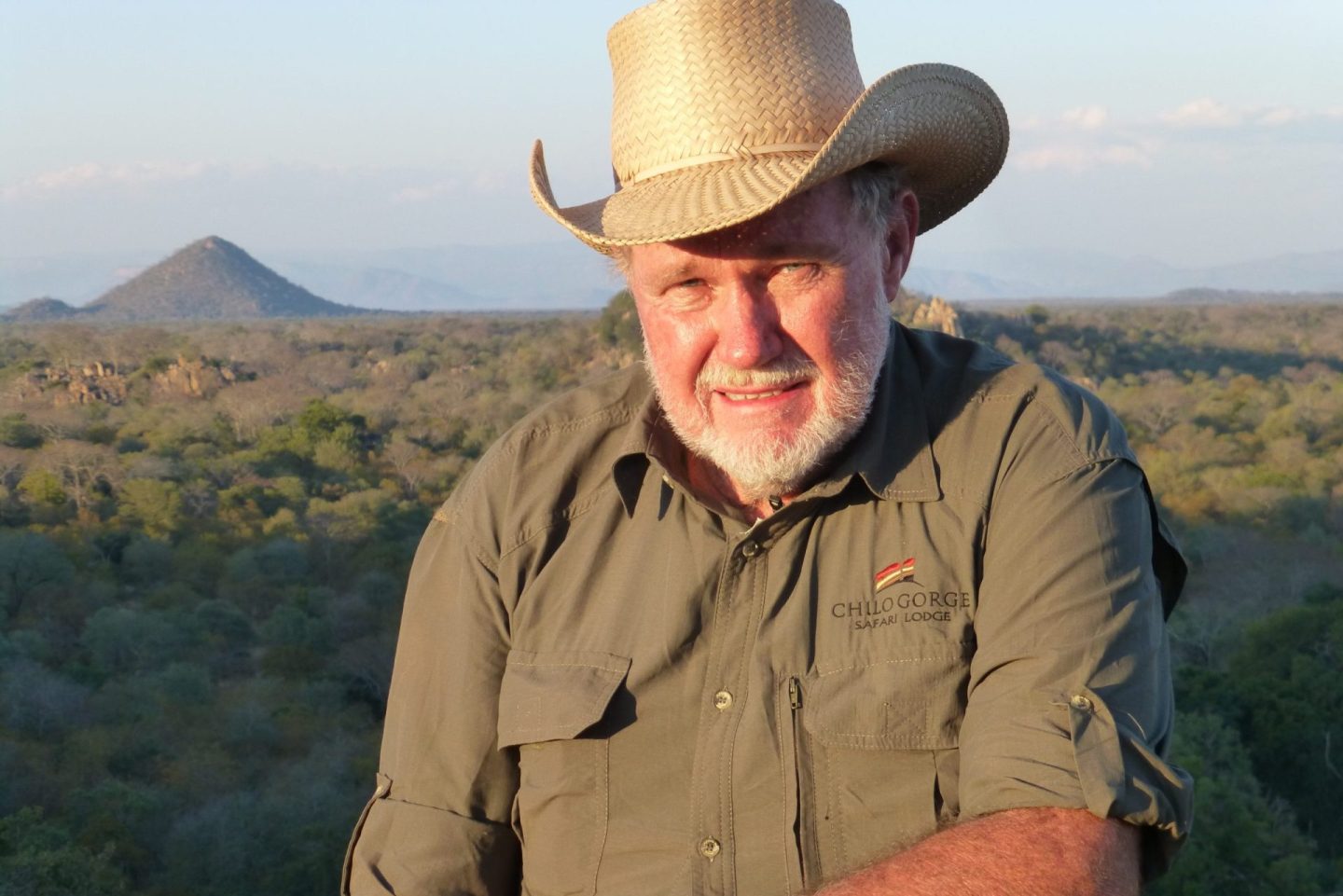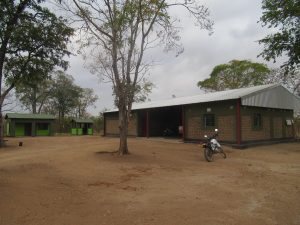
To kick things off, we spoke with the inaugural winner of the Prince William Award for Conservation in Africa, Clive Stockil, to see how his work has developed since 2013.
Q: Nearly ten years on from your award in 2013, how does it feel to have been the first recipient of the Prince William Award for Conservation in Africa?
Reflecting on the event now nearly ten years ago, I can only describe receiving this prestigious Prince William Award, in recognition of a lifetime contribution to conservation in Africa, as truly humbling. A great unexpected honour.
After quietly working with the Mahenye community adjacent to the Gonarezhou for 30 years, I have slowly been turning a situation of conflict to a situation of co-existence between the Shangaan Community and the National Park.
It was only after receiving the letter from HRH Prince William in June 2013 that I realised that my efforts and the successes of this pilot programme engaging communities in protecting their natural resources through sustainable use had registered globally. On reflection, the award was a life changing experience.
Q: How has your work developed since winning your award?
With some projects development has been slow due to the current political environment. However good progress has been made with the Mahenye community.
Following the early successes of the first CAMPFIRE program in Zimbabwe, the community, with the support of traditional leaders, decided to extend more of their land to wildlife conservation, and hopefully increase benefits from their natural resources.
Ten years ago, they set aside another seven thousand hectares of land adjacent to the Gonarezhou National Park, creating the Jamanda Community Conservancy. This was the first Community Conservancy in Zimbabwe.
With financial assistance from the European Union, the area has now been fenced and the construction of Ranger accommodation, workshops/storerooms and a reception have been completed.

In pursuance of developing income generating projects to achieve sustainability, the construction of a tourist camp has commenced within the Jamanda Conservancy, overlooking the Gonarezhou Park. This important project has been made possible by a generous donation from Community Conservation Fund Africa. Further funding is currently being negotiated for the completion of this project. It is hoped that construction will be completed by end of this year.
Q: How did winning your award impact your work on the ground?
There are a number of areas where this award positively impacted various programmes.
In the Mahenye Community and the Jamanda Conservancy, this award created and built awareness of this little-known community. The media interest was significant, placing the project on the global stage, driving an increase in tourist visits.
The impact on the future of the Save Valley Conservancy has also been evident from our discussions with the various Ministries and Government Authorities. Global attention, highlighting the importance of conserving the environment and increasing biodiversity, has been recognised by our government, aiding our ongoing discussions. The Royal endorsement through Tusk has been hugely beneficial.
Q: How has the landscape for conservation changed since winning your award? What new challenges are you facing?
The creation of the Jamanda Community Conservancy has expanded the landscape for the benefit of wildlife. An estimated two hundred elephants have now taken up residence in the Jamanda Conservancy, reducing overpopulation of elephants in the Gonarezhou Park.
The Save Valley Conservancy is still facing challenges. Land is still a politically tradable commodity. The need to expand human settlements challenges the long term security of large wildlife landscapes. I am currently pursuing opportunities to restructure the ownership of the Save Valley Conservancy.
The European Union has undertaken to review the best options for a sustainable way forward which will provide an opportunity to secure the land for the conservation of endangered species and create a link with the Greater Limpopo Transfrontier Conservation Area. Community involvement and sharing of benefits will be key in the restructuring process.
Q: What have been your major successes since winning your award?
The expansion of community land for conservation – something that thirty years ago would have been considered treasonous by the village elders. To witness the co-existence between the Mahenye Community and wildlife, particularly elephants on their land, has been hugely rewarding.
Whilst I am sure many would consider that the Save Valley Conservancy has failed to achieve its full potential, I consider it a success, premised on the fact that we are still on the land. We have seen an increase in elephants, rhinos and lions. The African Wild Dog population remains static, but giraffe numbers continue to increase.
We have positively dealt with internal administrative corruption. We will be assisting in the European Union sponsored review of the Save Valley Conservancy which hopefully will bring certainty around the future of this valuable piece of wildlife real estate.
